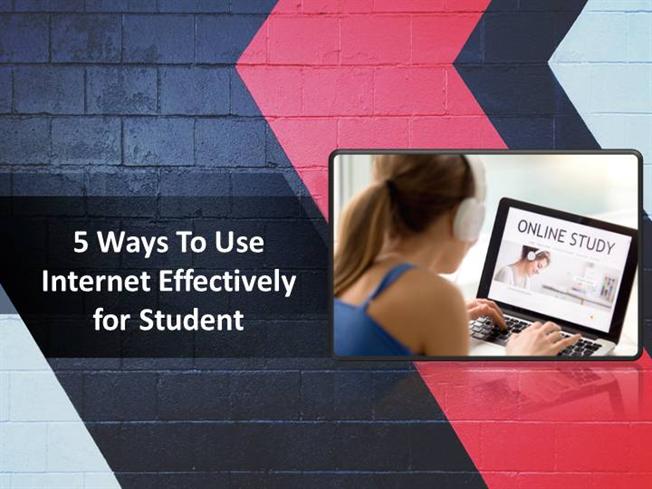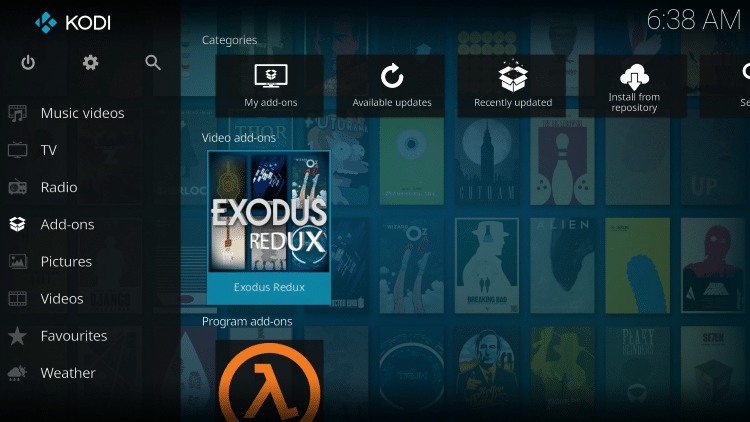5 Ways the Internet Can Be Good for Students

The Internet is a resourceful tool, which helps us in a variety of ways. It’s one of the best friends of students because they can tackle their assignments easier and faster.
There are lots of benefits from Internet use. We will highlight 5 major ways that help students to reach success in learning.
According to Internetlivestats.com, about 3,424,971,237 people actively use the World Web every day.
This number rapidly grows every year. This tendency isn’t surprising. The Internet offers multiple benefits and here are some of them.
Access to Information
The initial purpose of the Internet was to spread information and it has successfully accomplished this task.
One cannot even calculate how many terabytes of information is being reviewed each day.
The Internet opens access to all kinds of information. Thus, students can find dependable informative resources to cover any topic of their assignments.
Besides, they can find other data necessary to prepare and accomplish other kinds of academic tasks.
Online Education
Thanks to the instant connection to any resource, it became possible to study online.
Thus, students receive a possibility to educate themselves via the Internet in a variety of ways. They are free to choose whatever educational website and courses they wish.
Accordingly, every student can widen his/her own curriculum and learn some extra subjects or gain knowledge beyond the program.
It’s reported that students who have access to the Internet and pass online courses are 8% more likely to enjoy academic success.
In the last five years, the number of students who passed online courses has increased by 96%. This possibility given by the Internet really works.
Completing Assignments
Active use of the Internet and expert writing companies also greatly contributes to faster and better completion of academic assignments.
- First of all, students have a rich choice of educating sites. All famous colleges and universities offer their programs, write blogs and offer recommendations and smart tips about how to complete any piece of writing.
- Secondly, they can find such websites like WikiHow that offer free how-to articles. They dwell upon the issues of writing different academic papers. Moreover, they also offer solutions about how to speed up writing, edit and cite properly, and something of the kind.
- Thirdly, they can find special paper writing services. They offer qualified and professional assistance of approved experts. Such services can help to compose any academic assignment, as well as teach how to manage time, proofread, outline, cite and fulfill other tasks.
Learning More from Social Media
Young adults prefer spending a lot of time on social media. Such platforms like Facebook, Instagram, Twitter, and others offer all imaginable topics for conversations.
Such places aren’t only about fun and entertainment. Students can find a lot of useful groups and communities.
They join special communities and forums that discuss modern issues of education. They learn many useful tips and tricks about how to tackle their tasks and enhance their creativity, productivity, and efficacy.
Online users tend to draw some firm conclusions or make the final decisions when they find some proofs on the Internet. Commonly, this information can be trusted and is useful.
Improving Communicative Skills
Due to the regular chatting in social media, people sufficiently enhance their communicative and interpersonal skills.
It is a great chance for shy people who lack self-confidence. Online messaging gives them time to get used to their interlocutors and express their thoughts plainly.
Afterward, they enhance self-esteem and become more confident in real life. Accordingly, the Internet also serves for non-academic purposes.
Negative Aspects of the Internet Use
Some researchers claim that continuous use of the Internet induces various complications. Some of them are actually serious and all users should be aware of them.
Thus, a study conducted by scientists of Universiti Kebangsaan Malaysia in 2014 detected negative consequences of the Internet. The study revealed five major problems experienced by young adults.
These are:
- Interpersonal;
- Behavioral;
- Physical;
- Psychological;
- Work problems.
Another study made by assistant professors Joseph Mazer and Andrew M. Ledbetter, from Clemson University and Texas Christian University respectively also showed negative traces.
Constant online work leads to poor well-being due to Internet pressure, anxiety, socialization, and self-disclosure.
One may also find many other negative consequences. Amongst other issues one may recognize:
- Lack of creativity;
- Social isolation;
- Cyberbullying;
- Sleep deviations;
- Physical inactivity;
- Addiction, etc.
This list is long and the Internet users ought to be aware of all possible problems to avoid them.
Unexpected Advantages of the Internet
There are also a few quite unexpected benefits one can reap due to the World Web.
As many people spend a lot of time on social media, they post various kinds of information. It can provide some meaningful hints concerning various issues.
For example, the Internet can be used as a means of warning and prevention of potential suicides and crimes, including violence against animals.
Many advertisements can tell people where to receive emergency help. Some banners tell about hotlines for the victims of crimes.
There are also such posts that help to spread important data about the criminals asking people to share any piece of information about them.
These proofs show that the Internet is very helpful and can serve various purposes of students. On the other hand, one should use it cautiously. Otherwise, one may get easily addicted and absorbed by it missing real life.





